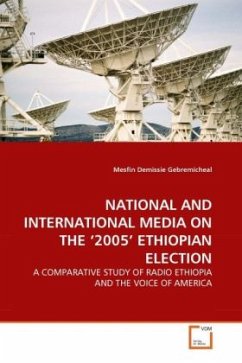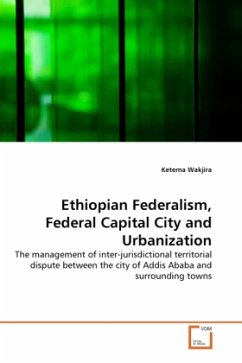
Security Threats to the Ethiopian State in the Post-1991 Years
The Nexus Between Internal and External Dimensions of Security Threats
Versandkostenfrei!
Versandfertig in 6-10 Tagen
32,99 €
inkl. MwSt.

PAYBACK Punkte
16 °P sammeln!
The Ethiopian state has often faced both internal and external dimensions of security threats since its formation as a modern' state. Various policies and strategies were designed by the successive regimes to alleviate the alleged sources of insecurity. These couldn't stave off the continuing crisis of the legitimacy of the state and/or the regimes. Although state and society were reorganized on ethno-linguistic lines to avert the alleged sources of insecurity, the suffering of both the state and the incumbent regime from a sense of insecurity has continued unabated in the post-1991 years. The...
The Ethiopian state has often faced both internal and external dimensions of security threats since its formation as a modern' state. Various policies and strategies were designed by the successive regimes to alleviate the alleged sources of insecurity. These couldn't stave off the continuing crisis of the legitimacy of the state and/or the regimes. Although state and society were reorganized on ethno-linguistic lines to avert the alleged sources of insecurity, the suffering of both the state and the incumbent regime from a sense of insecurity has continued unabated in the post-1991 years. The work reveals that the Ethiopian state has continued to face both internal and external dimensions of security threats. This is mainly due to weak socio-political integration, democratic deficiencies and paucity of consensus on the state-building project. The book provides an insight for readers, researchers and scientific community who have keen interest on the multi-dimensional political developments in Ethiopia. It also helps to further inquiry in the area of security studies as well as the formulation of appropriate policy that would likely to address the current state crisis.












